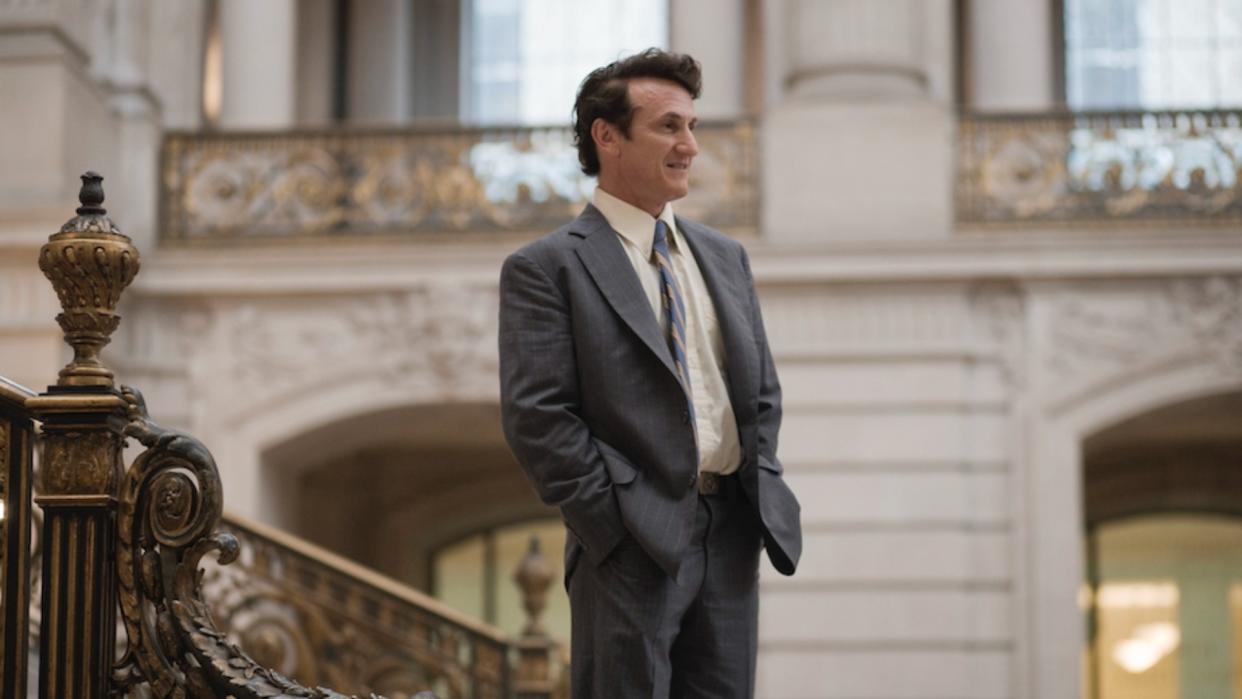Sean Penn went ’15 years miserable on sets’ after Milk, couldn’t play gay today due to ‘timid and artless policy toward human imagination’

Sean Penn has said he couldn’t play trailblazing out gay politician Harvey Milk today due to “timid and artless policy to toward the human imagination.”
The actor won a Best Actor Oscar for his performance as the Former Member of the San Francisco Board of Supervisors in 2008. Milk was the first publicly gay elected official in California.
The film was written by Tom Daley’s husband Dustin Lance Black and directed by Gus Van Sant.
“It could not happen in a time like this” – Sean Penn
Asked in a recent interview with the New York Times if he could play Milk today, Penn said: “No. It could not happen in a time like this. It’s a time of tremendous overreach. It’s a timid and artless policy toward the human imagination.”
Milk championed anti-discrimination policies and advocated for equality in his role. He was assassinated in 1978, becoming a symbol of courage, social justice and human rights.
Elsewhere in his interview, Penn said it would be 15 years before he had a happy on-set experience after Milk.
“I went 15 years miserable on sets,” he said. “Milk was the last time I had a good time.”
“I feel like an actor who is playing a leading role and is a known actor and is being paid well has a leadership position on a film and you’ve got to show up with energy and be a bodyguard for the director in some way,” he furthermore explained.
“I was faking my way through that stuff and that was exhausting. Mostly what I thought was just, ‘What time is it? When are we going to get off?’ “I was sure it was done, but I didn’t know how I was going to keep my house running or travel freely or things like that if I stopped.”
Penn, who was once married to Madonna, is also known for film such as Dead Man Walking and Licorice Pizza. He will soon be seen opposite Dakota Johnson in Daddio.
The post Sean Penn went ’15 years miserable on sets’ after Milk, couldn’t play gay today due to ‘timid and artless policy toward human imagination’ appeared first on Attitude.


